جامعة إقليم الباسك
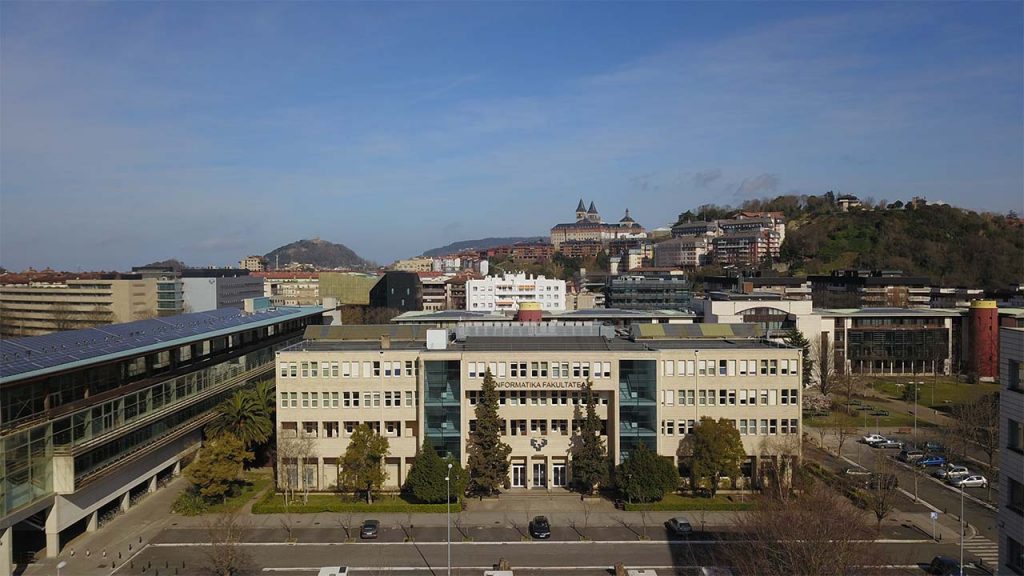
BASIC FACTS
The University of the Basque Country (UPV/EHU) is a teaching and research institution officially founded in 1980. The university employs over 7.500 people in 31 faculties and schools distributed in three different campuses, with more than 57.000 undergraduate and postgraduate students. The UPV/EHU has been recognised as an International Research Campus of Excellence by the Spanish Ministry of Science and Innovation (MICINN). Our courses catalogue consists of 67 Bachelor´s Degrees in all fields of knowledge. At postgraduate level, we offer 103 official master programmes, 44 professional & expert diplomas and 71 PhD programmes.
The UPV/EHU wishes to host an unrestricted and multicultural community. Our International Relations Office manages over 900 exchange agreements with other Spanish, European and International universities. Every year, our three campuses turn into lively melting pots where over 900 foreign students blend in with our local trainees. We take part in SICUE, the Spanish universities students´ exchange programme; ERASMUS, the most extended European mobility programme; and we furthermore have created our own exchange programmes with Latin-America (UPV/EHU-AMÉRICA LATINA) and other destinations (the USA, Canada, The Philipine Islands, New Zealand, Russia).
In 2014 the UPV/EHU started to support Erasmus + Programmes. By the time it has been the beneficiary of 6 Jean Monnet, 18 KA2 Strategic Partnerships, 2 KA2 Capacity Building, 1KA3 Support for policy reform and 2 Sports.
MISSION STATEMENT
UPV/EHU mission is to nurture an enlightened population by providing quality education and training based on knowledge, innovation and equity. As a public institution we are community-funded, and both fees and services rely only to a small extent on students: our university is owned by all, open to all. We support the acceptance of alterity and the inclusion of all members beyond discrepancies of any kind.
The UPV/EHU is a unique custodian of our age-old linguistic heritage: we have raised Basque language (the only pre Indo-European tongue still spoken) to the highest educational level.
CORE VALUES
Education as the base of a free society
Acceptance and inclusion beyond differences
PARTICIPATION IN THE EDU4ALL PROJECT
The UPV/EHU plays the role of Higher Education Institution (HEI) of a programme country that is transferring the know-how to partner country HEIs. With the aim of teaching people with disabilities in partner countries, UPV/EHU supports the modernisation, accessibility and internationalisation of partner country HEIs, by adapting learning materials, tools and pedagogical approaches, ensuring quality at institutional level. Training staff on teaching and dealing with students with disabilities and lab equipment are also objectives of the project. Therefore, this project contributes to cooperation between the EU and partner countries, by promoting people-to-people contacts, intercultural awareness and understanding.
UPV/EHU is the leader of WP3, following up procedures to assure adherence of all project aspects and outputs to the quality assurance mechanisms. UPV/EHU also participates in activities of the other work packages of the Edu4ALL project. People from EGOKITUZ research group are involved in this project (http://www.egokituz.org/en/).
أعضاء الفريق
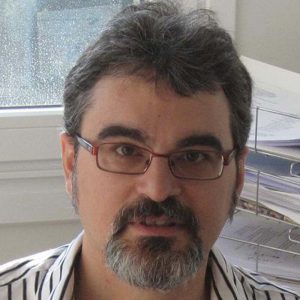
Dr. Nestor Garay-Vitoria received the M.S. and Ph.D. degrees in computer science from the University of the Basque Country (UPV/EHU) Donostia-San Sebastian, Spain, in 1990 and 2000, respectively. He is an Associate Professor with the Computer Architecture and Technology Department, UPV/EHU, where he was the first Academic Director of the Master’s Program on Assistive Technology for Personal Autonomy. He has co-written a book for the inclusion of Design for All in computing and telecommunications studies (ISBN: 978-84-8893-44-6)
He also has collaborated in the writing of a technical report for the Informatics Societies in Spain related to computing education in primary and secondary education. His research interest includes human–computer interaction for special needs in Egokituz Research Group (http://egokituz.org/en/), UPV/EHU. He is also interested in computer science education at all educational levels. ORCID: 0000-0002-1561-4799.
Nestor Garay-Vitoria
Associate Professor
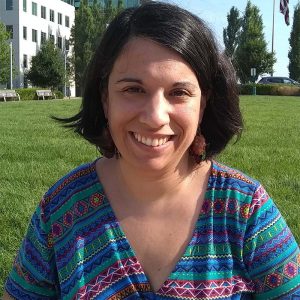
Dr. Sandra M. Espín-Tello received a BSc in Occupational Therapy (2009), an MSc in Social Gerontology (2010), and a Ph.D. in Health Sciences (2016) from Universidad de Zaragoza (Spain).She was a visiting researcher (three months) at Newcastle University (United Kingdom, 2015), and a postdoctoral research associate at Washington University in St. Louis (United States, 2018-2019). Since 2019 she works as a postdoctoral researcher at the EGOKITUZ Laboratory of Human-Computer Interaction for Special Needs – UPV/EHU (Spain). Her research interests include promoting the home and community participation of people with disabilities. ORCID: 0000-0002-0235-3104.
Sandra M. Espín-Tello
PhD Researcher
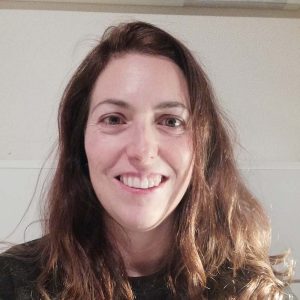
Dr. Myriam Arrue received the M.Sc. degree and Ph.D. in Computer Science by the University of the Basque Country (UPV/EHU), in 1999 and 2008 respectively. She is currently an Assistant Professor at the UPV/EHU and a member of the Egokituz Laboratory of HCI for Special Needs. Her research focuses on web accessibility evaluation, web navigation behaviour analysis, and the application of transcoding techniques for improving UX in web interactions. ORCID: 0000-0001-8859-8964.
Myriam Arrue
Associate Professor
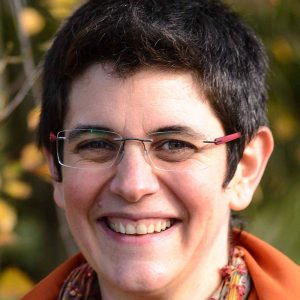
Dr. Edurne Larraza-Mendiluze completed her PhD. thesis in 2014 in the area of computer architecture analyzing the students’ understanding of the input/output subsystem and different perspectives to teach it. Nowadays she studies the impact that teaching Informatics and Computational thinking in primary and secondary education can have. In order to achieve this objective she dynamizes the JolasMATIKA projects where students learn and teach Informatics through games. ORCID: 0000-0003-2619-4176.
Edurne Larraza-Mendiluze
Associate Professor

Dr. J. Eduardo Pérez received a BSc in Computer Science (2011), a MSc in Embedded Systems Engineering (2013) and a PhD in Computer Science (2020) from the University of the Basque Country (UPV/EHU). Currently, he works as a PhD researcher at the EGOKITUZ Laboratory of Human-Computer Interaction for Special Needs. His research interests focus on studying human behaviours on the Web within diverse groups of people with special needs and testing different software enhancements in order to improve their experience: performance and satisfaction. ORCID: 0000-0001-6185-2301.
J. Eduardo Pérez
PhD Researcher

Dr. Julio Abascal, BSc in Physics (U. de Navarra 1978), PhD in Informatics (UPV/EHU 1987), is a Professor at the UPV/EHU (Spain).He founded and leads the Egokituz: Laboratory of Human-Computer Interaction for Special Needs (1985-). His research is focussed on Human-Computer Interaction (HCI) methods for Assistive Technology, Digital Accessibility, and Assistive Robotics. He also studies methods and tools to enhance sensory, physical and cognitive accessibility to the Web. He is the Vice-Chair for Development and Equity of the International Federation for Information Processing (IFIP) TC13 Committee on HCI
He is the founder chairperson (1993) of the IFIP WG13.3 “HCI and Disability”. He served as an expert, advisor, reviewer and evaluator for diverse EU research frameworks (1990-). He is an ACM (2013) and IEEE (2020) Senior Member. He received the IFIP Silver Core award (1998), the IFIP TC13 Pioneer award (2015), and the IFIP Fellow award (2019). ORCID: 0000-0002-6551-1616.
